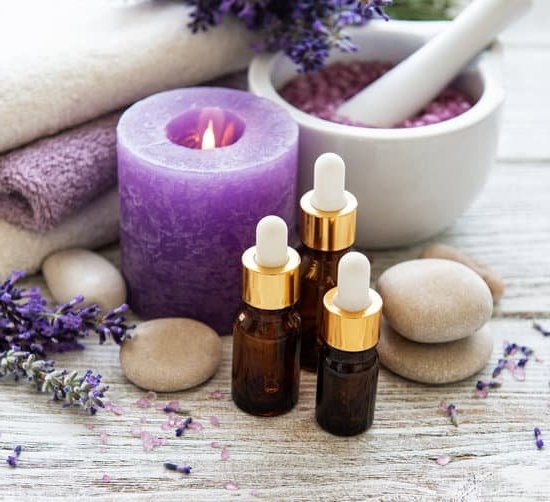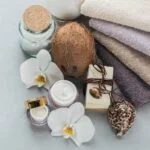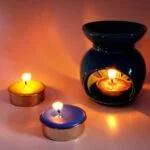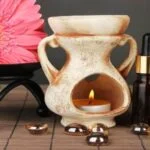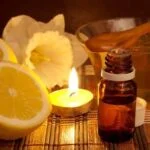Aromatherapy, the practice of using essential oils for therapeutic purposes, is gaining popularity worldwide, including in Canada. This holistic approach to health and wellness involves the use of aromatic plant extracts to promote physical and emotional well-being. While aromatherapy has ancient roots, it has seen a resurgence in modern times as people seek natural alternatives for managing stress, improving sleep, and addressing other health concerns.
In Canada, the practice of aromatherapy has been steadily growing, with an increasing number of practitioners offering essential oil treatments across the country. The history of aromatherapy in Canada dates back to the early days of European settlement when Indigenous peoples were already using plant-based remedies for healing. Today, Canadians are embracing this natural therapy as part of their self-care routines.
The benefits of aromatherapy are vast, ranging from reducing anxiety and depression to easing physical discomforts like headaches and muscle tension. Essential oils are known for their calming, energizing, or purifying properties, making them versatile tools for promoting overall wellness. From massage oils to diffuser blends, there are numerous ways to incorporate aromatherapy into daily life in Canada for a holistic approach to health and well-being.
History of Aromatherapy in Canada
Aromatherapy has a long-standing history in Canada, with its roots tracing back to Indigenous practices that utilized the healing properties of plant extracts. The use of essential oils for their therapeutic benefits dates back centuries, with First Nations people incorporating them into their traditional medicine and rituals. These practices have influenced the evolution of aromatherapy in Canada over time.
In more recent history, the formal practice of aromatherapy gained popularity in Canada during the 20th century as an alternative and complementary therapy. The holistic approach to healing and well-being offered by aromatherapy appealed to many Canadians looking for natural remedies to support their overall health. As a result, the demand for certified aromatherapists and quality essential oils has steadily increased across the country.
Today, aromatherapy is widely practiced in Canada, not only by trained professionals but also by individuals in their homes to promote relaxation, relieve stress, improve sleep, and enhance overall wellness. The recognition of the therapeutic benefits of essential oils has led to a growing market for aromatherapy products and services throughout the country. Businesses offering aromatherapy treatments, workshops, and products can be found in various provinces, catering to those seeking natural healing methods.
| History of Aromatherapy in Canada | Key Points |
|---|---|
| Aromatherapy has deep-rooted Indigenous influences in Canada. | Indigenous practices played a significant role in shaping aromatherapy traditions. |
| The formal practice of aromatherapy gained popularity in the 20th century as an alternative therapy. | Canadians turned to aromatherapy for holistic well-being solutions. |
| Aromatherapy is now widely practiced across Canada for relaxation, stress relief, and wellness enhancement. | The demand for aromatherapy products and services continues to rise nationwide. |
Benefits of Aromatherapy
Aromatherapy is a holistic healing treatment that uses essential oils extracted from plants to promote physical, mental, and emotional well-being. These potent oils are believed to have various therapeutic benefits when inhaled or applied to the skin. In Canada, the practice of aromatherapy is gaining popularity as more people seek natural remedies for health issues and relaxation.
Stress Relief and Relaxation
One of the most prominent benefits of aromatherapy is its ability to reduce stress and induce relaxation. Essential oils like lavender, chamomile, and ylang-ylang have calming properties that can help alleviate anxiety, improve sleep quality, and promote a sense of peace and tranquility. In today’s fast-paced world, many Canadians turn to aromatherapy as a way to unwind after a long day or manage everyday stressors.
Boosting Mood and Mental Clarity
Aromatherapy is also known for its mood-enhancing effects. Certain essential oils have uplifting properties that can stimulate the senses, improve focus, and increase mental clarity. Citrus oils like lemon and sweet orange are commonly used in aromatherapy for their energizing and mood-boosting qualities. In Canada, individuals may use these essential oils in diffusers at home or incorporate them into their self-care routines for a natural pick-me-up.
Relief From Physical Discomfort
In addition to its mental health benefits, aromatherapy is often used to address physical discomfort such as headaches, muscle pain, or respiratory issues. Essential oils like peppermint, eucalyptus, and tea tree oil have analgesic and anti-inflammatory properties that can provide relief from common ailments. Many massage therapists and wellness practitioners in Canada incorporate aromatherapy into their treatments to enhance relaxation and reduce pain during therapy sessions.
Overall, the diverse range of benefits offered by aromatherapy has contributed to its growing popularity in Canada. Whether seeking stress relief, mood improvement, or physical comfort, many individuals across the country are incorporating aromatherapy into their daily routines as a natural approach to better health and well-being. The availability of essential oils and knowledgeable practitioners make it easy for Canadians to explore the therapeutic potential of this ancient practice within a modern context.
Popular Essential Oils Used in Aromatherapy in Canada
Essential oils are at the core of aromatherapy practices, and they play a significant role in promoting overall well-being. In Canada, there is a growing interest in using essential oils for their therapeutic properties. Some of the popular essential oils used in aromatherapy across the country include:
- Lavender oil: Known for its calming and relaxing effects, lavender oil is commonly used to reduce stress and promote better sleep.
- Peppermint oil: With its refreshing scent, peppermint oil is often used to alleviate headaches, improve mental clarity, and aid digestion.
- Tea tree oil: Recognized for its antibacterial and antifungal properties, tea tree oil is frequently used for skincare purposes, such as treating acne and insect bites.
These essential oils can be diffused, applied topically with a carrier oil, or added to bath water for aromatic benefits. It is important to note that essential oils should be used with caution and following proper guidelines to ensure safety and effectiveness.
In addition to the aforementioned essential oils, other popular options in Canada include eucalyptus oil for respiratory support, chamomile oil for relaxation, and citrus oils like lemon or orange for an uplifting mood. Each essential oil has unique properties that cater to different wellness needs – making aromatherapy a versatile practice that can be personalized based on individual preferences and health goals.
As more Canadians embrace natural health therapies and seek alternative ways to support their well-being, the use of essential oils in aromatherapy continues to gain popularity across the country. Whether incorporated into massage sessions, yoga classes, or daily self-care routines, these aromatic extracts are becoming increasingly integrated into mainstream healthcare practices.
The diverse range of essential oils available allows individuals to explore different scents and therapeutic benefits while promoting a holistic approach towards improving both physical and emotional health.
Certification and Regulation of Aromatherapy Practitioners in Canada
Aromatherapy is a holistic healing treatment that uses natural plant extracts to promote health and well-being. It is gaining popularity in Canada as people are looking for alternative and complementary therapies to support their overall wellness. As with any healthcare practice, it is essential to ensure that practitioners are properly trained and regulated to provide safe and effective care.
In Canada, there is no specific regulation governing aromatherapy practitioners at the national level. However, some provinces have taken steps to establish standards and requirements for certification. For example, in British Columbia, individuals who wish to practice aromatherapy professionally can pursue training programs offered by recognized schools and obtain certification through organizations like the Canadian Federation of Aromatherapists.
Certification in aromatherapy typically involves completing a certain number of hours of training, passing exams, and demonstrating practical skills. It ensures that practitioners have the knowledge and competence to use essential oils safely and effectively. While certification is not mandatory in all provinces, it is a way for practitioners to demonstrate their commitment to professionalism and quality care when offering aromatherapy services to clients.
Aromatherapy Practices in Different Provinces of Canada
Aromatherapy is indeed practiced in Canada, with a growing number of individuals turning to this alternative therapy for various health and wellness benefits. In different provinces across the country, there are practitioners, spas, wellness centers, and even hospitals that offer aromatherapy services. Each province has its own unique approach to incorporating essential oils and aromatherapy techniques into their practice.
In British Columbia, for example, there has been a rise in holistic healing centers that offer aromatherapy as part of their services. Practitioners in British Columbia often blend custom essential oil blends tailored to individual needs. Ontario, on the other hand, has seen an increase in wellness retreats that focus on the use of essential oils for relaxation and stress relief. Quebec incorporates aromatherapy into spa treatments for both locals and tourists looking to unwind and rejuvenate.
It is important to note that while aromatherapy is practiced across different provinces in Canada, the regulations surrounding certification and training of aromatherapists may vary. Some provinces may require formal certification or membership in professional associations to ensure practitioners meet certain standards of practice. Overall, the diverse approaches to aromatherapy practices in different provinces contribute to the overall popularity and accessibility of this alternative therapy in Canada.
| Province | Aromatherapy Practices |
|---|---|
| British Columbia | Holistic healing centers offering custom essential oil blends |
| Ontario | Wellness retreats focusing on relaxation and stress relief with essential oils |
| Quebec | Spas incorporating aromatherapy into treatments for relaxation and rejuvenation |
Research and Studies on Aromatherapy in Canada
Aromatherapy is a holistic healing treatment that uses natural plant extracts to promote health and well-being. In Canada, research and studies on aromatherapy have been increasingly gaining attention as more people seek alternative methods for managing their physical, mental, and emotional health.
Impact of Aromatherapy on Mental Health
Studies in Canada have shown that certain essential oils used in aromatherapy can have a positive impact on mental health. For example, lavender oil has been found to reduce anxiety and promote relaxation, while peppermint oil may help improve focus and concentration. Research continues to explore the potential benefits of aromatherapy for conditions such as depression, stress, and insomnia.
Evidence-Based Practices
In Canada, there is a growing emphasis on evidence-based practices within the field of aromatherapy. Researchers are conducting clinical trials and observational studies to assess the effectiveness of different essential oils for various health concerns. This scientific approach is helping to establish aromatherapy as a credible complementary therapy option alongside traditional medical treatments.
Collaborations With Health Professionals
Aromatherapy practitioners in Canada are increasingly collaborating with healthcare professionals to integrate aromatherapy into patient care. Hospitals, clinics, and wellness centers across the country are exploring the use of essential oils in conjunction with conventional treatments to enhance overall patient outcomes. This interdisciplinary approach is helping to further legitimize and expand the practice of aromatherapy in Canada.
How to Incorporate Aromatherapy Into Your Daily Routine in Canada
Aromatherapy has gained popularity in Canada as a holistic approach to health and wellness. Incorporating aromatherapy into your daily routine can offer numerous benefits, from reducing stress and anxiety to promoting relaxation and improving sleep quality. Here are some simple ways you can incorporate aromatherapy into your daily life in Canada:
- Diffuser: Invest in an essential oil diffuser to fill your home with fragrant scents that can uplift your mood or create a calming atmosphere. Simply add a few drops of your favorite essential oil and let the diffuser work its magic.
- Bath Soak: Treat yourself to a relaxing bath by adding a few drops of essential oils like lavender, chamomile, or eucalyptus to your bathwater. The soothing scents will help you unwind after a long day.
- Aromatherapy Jewelry: Wear aromatherapy jewelry such as diffuser necklaces or bracelets that allow you to enjoy the benefits of essential oils throughout the day. Simply apply a drop of oil to the jewelry and enjoy the subtle fragrance all day long.
Incorporating aromatherapy into your daily routine is not only easy but can also have a positive impact on your overall well-being. Whether you choose to use essential oils topically, aromatically, or even internally (under the guidance of a qualified practitioner), there are countless ways to experience the benefits of aromatherapy in Canada.
- Morning Routine: Start your day off right by adding a few drops of invigorating essential oils like peppermint or citrus blends to your shower gel or body lotion for an energizing boost.
- Work Environment: Create a calming work environment by diffusing essential oils like rosemary or lemongrass to help improve focus and concentration during the workday.
- Bedtime Ritual: Wind down before bed by dabbing some calming essential oils like chamomile or cedarwood on your pillows or bedding to promote restful sleep.
With so many different ways to incorporate aromatherapy into your daily routine in Canada, you can easily reap the benefits of this ancient practice and enhance both your physical and emotional well-being. Explore different methods and find what works best for you to enjoy the therapeutic effects of aromatherapy every day.
Conclusion
As we have explored throughout this article, aromatherapy is indeed practiced in Canada and its popularity continues to grow steadily. From its ancient roots to modern-day applications, aromatherapy has established itself as a well-loved holistic practice in the country. The history of aromatherapy in Canada is rich and diverse, with a wide range of essential oils being utilized for their therapeutic benefits.
With the increasing interest in natural healing methods and alternative therapies, Canadians are embracing aromatherapy for its numerous benefits on physical, mental, and emotional well-being. The demand for skilled aromatherapists is also on the rise, leading to a greater focus on certification and regulation within the industry. This ensures that practitioners adhere to high standards of practice and maintain the safety and effectiveness of their treatments.
As research and studies on aromatherapy continue to expand in Canada, more evidence is being gathered to support its healing properties. Whether you choose to incorporate aromatherapy into your daily routine at home or seek professional treatment from a certified practitioner, there are numerous ways to experience the benefits of this aromatic therapy. The future prospects of aromatherapy in Canada look promising as more people recognize its value in promoting overall wellness and quality of life.
Frequently Asked Questions
Are Essential Oils Regulated in Canada?
Essential oils in Canada are not regulated in the same way pharmaceuticals are, but they do fall under the category of natural health products. This means they must meet certain safety and quality standards set by Health Canada.
What Cultures Use Aromatherapy?
Aromatherapy has been used for thousands of years by various cultures around the world, including ancient Egyptians, Greeks, Romans, Chinese, and Indians. Each culture has developed its unique practices and methods of using essential oils for therapeutic purposes.
Where Does Aromatherapy Originate From?
The roots of aromatherapy can be traced back to ancient civilizations like Egypt, China, and India. The earliest recorded uses of plant essences for healing and spiritual practices date back thousands of years. The modern concept of aromatherapy as we know it today emerged in the early 20th century with French chemist René-Maurice Gattefossé’s work on essential oils.

Are you looking for a natural way to improve your health and wellbeing?
If so, aromatherapy may be the answer for you.

